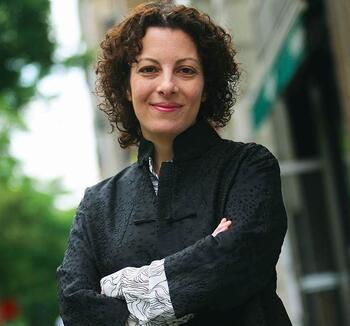Moscow’s Proposed Security Agreements: A Genuine Opening for Bargaining?
For winter quarter 2021, CISAC will be hosting hybrid events. Many events will offer limited-capacity in-person attendance for Stanford faculty, staff, fellows, visiting scholars, and students in accordance with Stanford’s health and safety guidelines, and be open to the public online via Zoom. All CISAC events are scheduled using the Pacific Time Zone.
SEMINAR RECORDING
About the Event: As large Russian military formations threaten Ukraine, the Kremlin demanded security guarantees and publicized draft U.S.-Russia and NATO-Russia agreements encapsulating its desired provisions. With discussions with Russian officials set for mid-January, are these draft agreements intended for rejection in order to provide another pretext for Russian military action against Ukraine, or do they represent an opening bid in a negotiation that might ultimately address Western, Russian and Ukrainian security concerns? Jim Goldgeier, Visiting Scholar at the Center for International Security and Cooperation, and Rose Gottemoeller, Steven C. Házy Lecturer at the Center for International Security and Cooperation, will discuss the Russian draft agreements, whether they offer a basis for serious negotiation, and how the United States and NATO should respond.
About the Speaker: James Goldgeier is a Visiting Scholar at the Center for International Security and Cooperation at Stanford University, a Visiting Fellow at the Brookings Institution, and a Professor of International Relations at the School of International Service at American University, where he served as Dean from 2011-17. Previously, he was a professor at Cornell University and George Washington University. He has held appointments or fellowships at the Library of Congress, the Council on Foreign Relations, the Woodrow Wilson International Center for Scholars, the Transatlantic Academy at the German Marshall Fund, the Hoover Institution, and at the State Department and on the National Security Council Staff. He is a senior adviser for the Bridging the Gap initiative and is co-editor of the Bridging the Gap book series at Oxford University Press. He has authored or co-authored four books, and he currently serves as the chair of the State Department Historical Advisory Committee.
Rose Gottemoeller is the Steven C. Házy Lecturer at Stanford University's Freeman Spogli Institute for International Studies and its Center for International Security and Cooperation. Before joining Stanford Gottemoeller was the Deputy Secretary General of NATO from 2016 to 2019, where she helped to drive forward NATO’s adaptation to new security challenges in Europe and in the fight against terrorism. Prior to NATO, she served for nearly five years as the Under Secretary for Arms Control and International Security at the U.S. Department of State, advising the Secretary of State on arms control, nonproliferation and political-military affairs. While Assistant Secretary of State for Arms Control, Verification and Compliance in 2009 and 2010, she was the chief U.S. negotiator of the New Strategic Arms Reduction Treaty (New START) with the Russian Federation.
This event is virtual only. This event will not be held in person.








